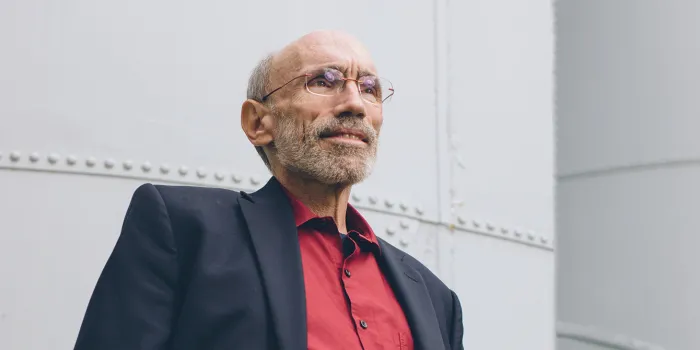Advances in treatment have made it possible for people with hemophilia to lead relatively normal lives, but Glenn Pierce has vivid memories of what life used to be like. As a child with severe hemophilia A in the 1960s, he sometimes spent months in the hospital—he missed all of seventh grade and half of his sophomore year in high school—trying to control the bleeds in his joints and muscles.
It wasn’t until he got to college that his illness became easier to manage because of the availability of freeze-dried powdered concentrates containing clotting factor that people could store at home. “When I noticed a bleed starting,” the 65-year-old scientist recalls, “I could just treat myself right away.”
His illness shaped the course of his life in obvious and unexpected ways. His single mother, who struggled to manage crisis after crisis in a child with a potentially lethal disease, instilled in him the importance of getting an education, which led him to become a doctor and a researcher.
“Physicians became my role models, and understanding the pathophysiology of hemophilia became a mission for me so that I could get better control over my disease and over my destiny,” says Pierce, who received his medical and doctoral degrees in immunology from Case Western Reserve University in his hometown of Cleveland.
Eye-opening Experience
Pierce’s early life experiences also imbued him with a deep sense of compassion for those in similar straits. This later prompted him to spearhead a greatly expanded humanitarian drive by the World Federation of Hemophilia (WFH) to distribute clotting factor to people with hemophilia in impoverished developing countries who don’t have access to the modern medicine that changed his life for the better.
“This program is saving lives every day,” says Pierce, who divides his time between San Diego and San Francisco. “It’s just amazing. Half the factor that we’re delivering is factor that I had the privilege of steering through clinical development and approval.”
In fact, over a 30-year scientific career marked by numerous achievements, Pierce has been involved in research in tissue regeneration and hematology, including hemophilia, and in the development of five approved products for hemophilia. Among others, he has worked at Amgen, Bayer HealthCare and Biogen, where he was senior vice president of hematology, cell and gene therapies.
In the 1990s, he started attending international meetings of the WFH—he now serves on the organization’s board of directors as vice president, medical—and it was a revelation. “I met people from over 100 countries who did not have the kind of treatments that I was fortunate enough to have,” he recalls. “It opened my eyes to what’s going on in the rest of the world, and it wasn’t pretty. The patients have no treatments. They’re crippled, often immobilized in bed or in a wheelchair, unable to work, with a very poor quality of life, and a short life. They suffer and die.”
Changing Possibilities in Hemophilia
Pierce knew he had to do something. In 2012, he brought his entire management team, including Biogen’s CEO, to the WFH’s annual meeting in Paris. “It opened all of their eyes,” he says. “We worked together to develop a program where we committed to donate 1 billion units of clotting factor over 10 years to the hemophilia community. Sanofi has acquired the Biogen hemophilia franchise and continues to honor the commitment.”
Since then, other companies have come on board, and the program has changed the lives of more than 20,000 people with hemophilia, lifting them out of wheelchairs, enabling them to get lifesaving surgeries because their bleeding can be controlled while they’re in the operating room, and to have careers and families. “It’s a remarkably small group of people in the WFH headquarters under the guidance of Dr. Assad Haffar who are distributing over 200 million units a year to 70 countries,” says Pierce of the WFH’s Humanitarian Aid Program. “That’s a logistical feat.”
There are at least 1 million people with hemophilia globally, so it’s still a drop in the bucket. “Only a minority of these people are getting adequate treatment,” Pierce says, “but it’s a start.”
For more information on this program and to get involved, visit www.wfh.org/en/wfh-humanitarian-aid-program.

